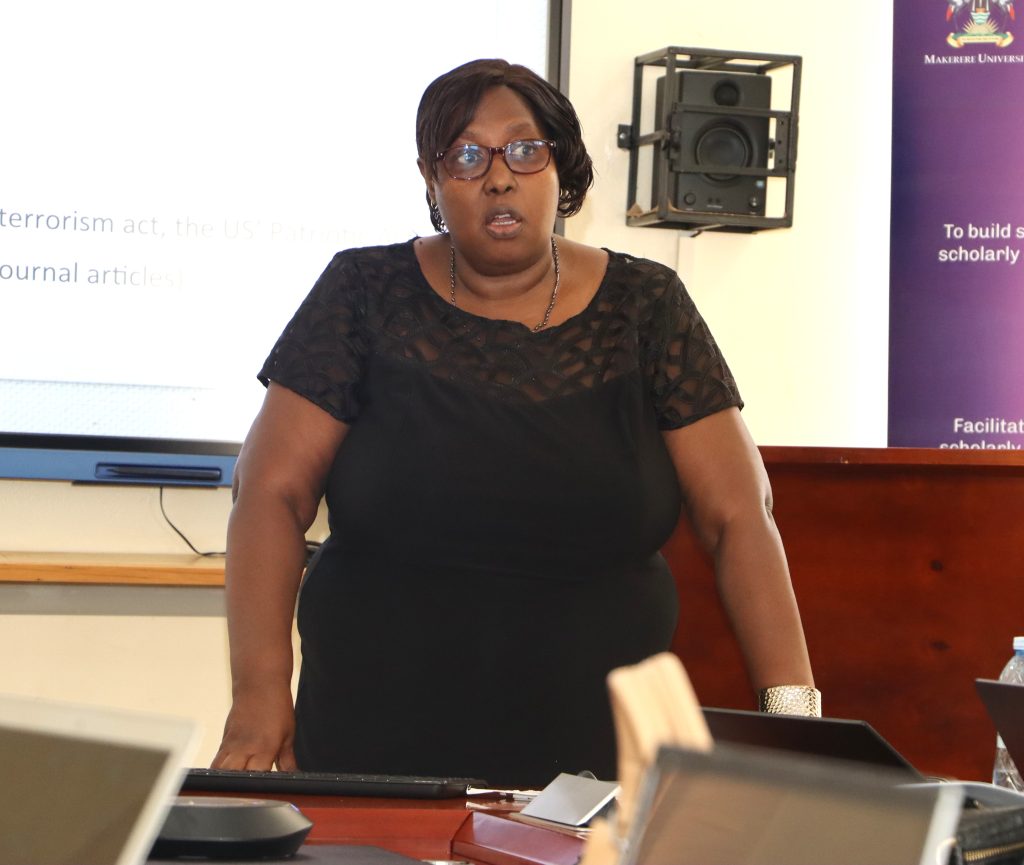KAMPALA, July 25, 2025 — The Great Lakes Center for the Study of the United States convened its second research review workshop at Makerere University’s School of Social Sciences Smart Room, marking another milestone in the institution’s growing academic engagement on U.S.-Africa relations.
The workshop brought together research fellows, academic mentors, and U.S. partners to review and discuss findings from ongoing secondary data surveys. It forms part of the Center’s broader goal of producing a scholarly publication on historical and contemporary U.S.-Uganda relations.
Launched in March 2025 with startup support from the United States Mission in Kampala, the Center aims to strengthen academic research, foster dialogue, and deepen mutual understanding between Ugandans and Americans. The current research initiative, centered around a forthcoming monograph, builds on the Center’s first workshop held in April.
Dr. Sylvester Kaweesi, Principal Investigator of the project, opened the session by thanking participants and emphasizing the importance of the peer-review process in shaping strong academic publications. He acknowledged financial delays within the university system but reassured researchers that the initial funds were nearly ready and timelines could be adjusted accordingly.
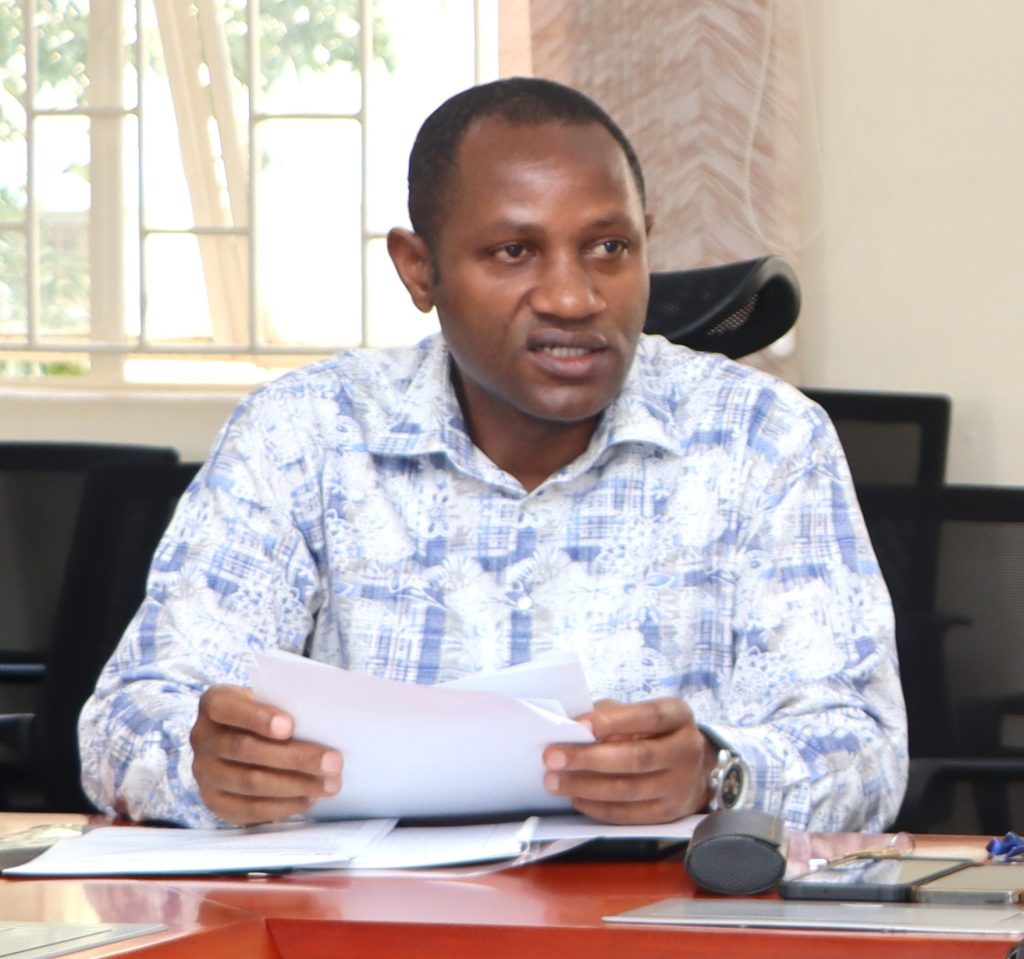
“We are largely on track,” said Dr. Kaweesi. “The real work begins now, and we must stay committed not just to speed, but to quality and inclusion.”
He also revealed ongoing negotiations with three publishers, expressing a preference for a South African partner that had shown flexibility in supporting less-developed manuscripts.
Professor Paul Omach, the Center Director and Co-Principal Investigator, praised the researchers for remaining engaged despite academic workloads. He likened the research process to “digging,” urging participants to sustain momentum through regular discussions and mutual support.
“Writing alone limits perspective,” Prof. Omach said. “These conversations help clarify your work and will ultimately strengthen how your ideas are received.”
He called for researchers to treat feedback constructively and emphasized that ideas evolve best through open intellectual exchange. Prof. Omach also welcomed U.S. collaborators, praising the role of international partnerships in enriching the project’s scope.
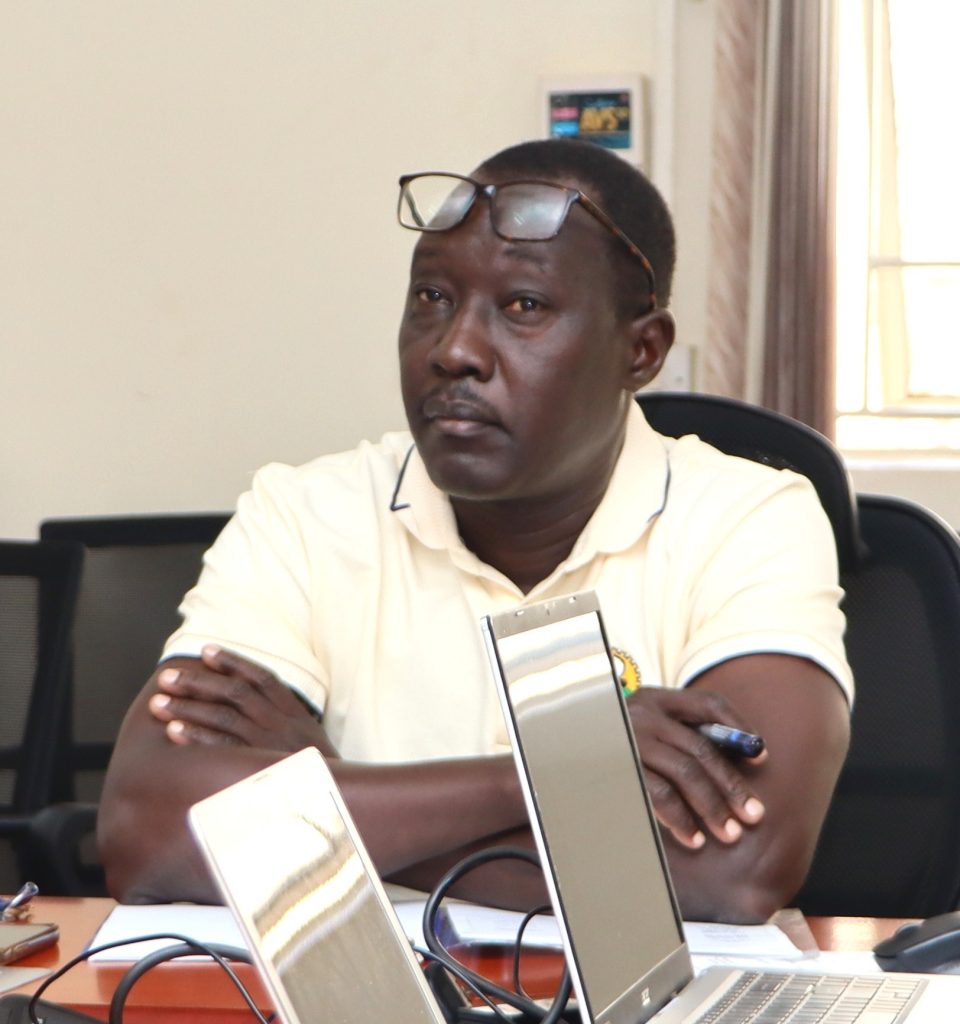
U.S. Partners Express Confidence and Continue Matchmaking
Representing the American side, Veronica Ssempebwa commended the alignment between Makerere University and the U.S. Mission. She confirmed ongoing efforts to pair Ugandan researchers with U.S. counterparts and announced that pre-engagement calls had been scheduled to define joint research parameters.
“We’re building strong academic partnerships,” she said, while acknowledging the challenge of matching some researchers. She also encouraged the Center to enhance its public visibility and engagement through broader participation and outreach.
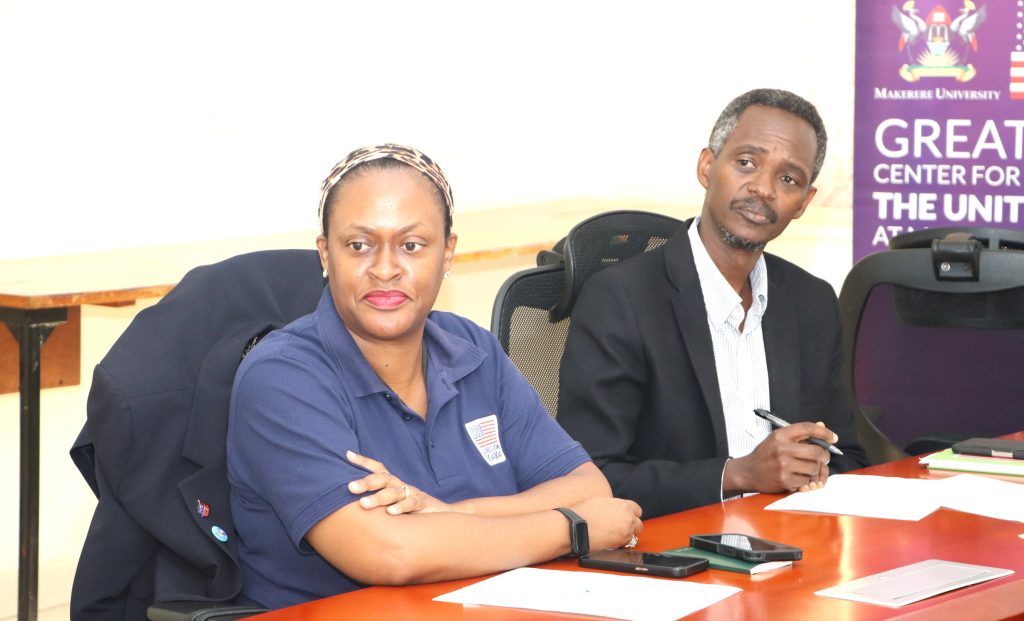
Ssempebwa shared news of a planned cultural session featuring Ugandan researcher Dr. Ssempijja and a Latvian Grammy-winning jazz artist, underscoring the project’s commitment to multidisciplinary collaboration.
Professor Kasaija Apuuli, Co-PI and mentor, stressed the importance of moving from data collection to structured academic writing. Encouraging scholars to “at least write a paragraph,” he advised that the next phase would involve closer scrutiny of written drafts to assess progress.
In closing remarks, Prof. Omach reiterated the need for continuous reading and peer communication. “Don’t isolate yourselves,” he urged. “Academic work grows in dialogue.”
Dr. Kaweesi wrapped up the workshop by outlining the upcoming steps: submission of full draft papers, pairing researchers with mentors for peer feedback, and organizing public dialogues to share research insights beyond academia.
“Our chapters are beginning to speak to each other,” he said. “This is the sign of a cohesive and promising project.”
Dr. Kaweesi also noted that a project extension of two to three months may be sought to accommodate ethical review requirements and additional data collection, but he reaffirmed his confidence in the team’s direction. The date for the next review session will be communicated in consultation with external academic partners.
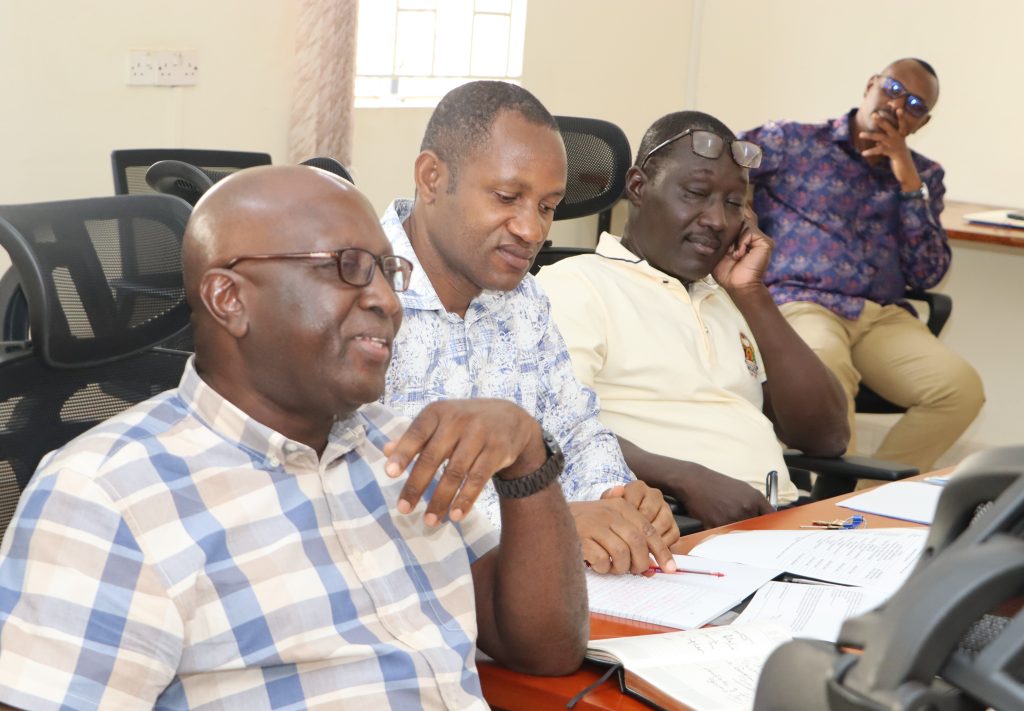
The Great Lakes Center for the Study of the United States was established within Makerere University’s Department of Political Science with funding from the U.S. Mission in Kampala. The Center promotes interdisciplinary research and aims to strengthen academic and cultural ties between the United States and the Great Lakes region of Africa.
The research
Dr. Nicholas Sempijja presented progress on his work titled, “Jazz Music and the Appropriation of Americanness in the Popular Music Culture in Uganda.” While Ms. Itah Patience Mbethki’s presentation explored the Fulbright Scholarship through three interconnected lenses: education, culture, and relationships.
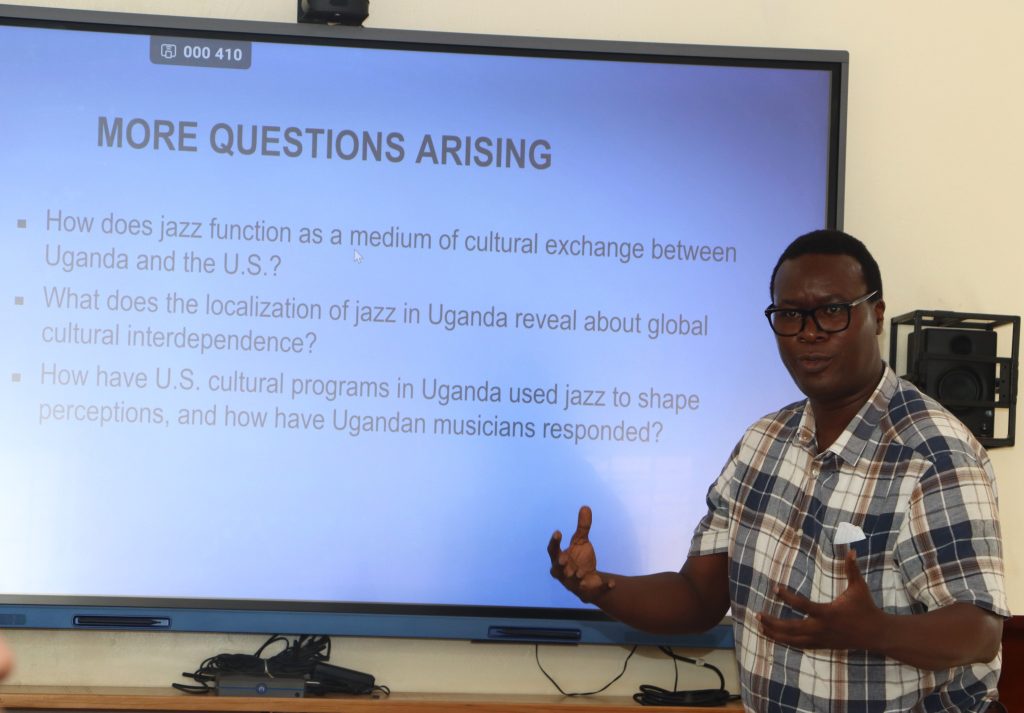
Dr. Charlotte Mafumbo provided a brief recap of her team’s previous presentation and introduced the current focus: A relational analysis of Uganda–USA counterterrorism cooperation since 1945 while Dr. Bernard Luwerekera presented on Promoting Peace and Friendship: The US-Uganda Relations Through the Lens of the Peace Corps Program. Mr. Lumumba Bwire research work is entitled, “The Politics of Democracy: The United States’ Contribution to Democarcy in Uganda “
